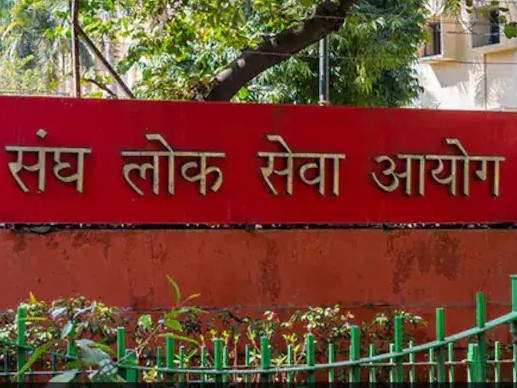UPSC (The Union Public Service Commission) is a constitutional body in India, often regarded as the backbone of the country’s administrative framework. Established under Article 315 of the Indian Constitution, the UPSC is responsible for recruiting candidates for some of the most prestigious and challenging roles in the Indian government, including the Indian Administrative Service (IAS), Indian Police Service (IPS), and Indian Foreign Service (IFS), among others. This article delves into the history, functions, examination process, and significance of the UPSC, shedding light on why it remains a coveted yet formidable pursuit for millions of aspirants.
Historical Background
The origins of the UPSC can be traced back to the British colonial era. The concept of a merit-based recruitment system for public services was introduced through the Indian Civil Service (ICS) examinations in the 19th century. However, it was only after India’s independence in 1947 that the UPSC was formally established in 1950, replacing the Federal Public Service Commission. The UPSC was designed to ensure a transparent, impartial, and merit-based selection process for the country’s top administrative positions, aligning with the vision of a democratic and inclusive India.
Role and Functions of the UPSC
The UPSC operates as an autonomous body under the Government of India, tasked with several critical responsibilities. Its primary role is to conduct competitive examinations and interviews to recruit candidates for various civil services and central government posts. Beyond recruitment, the UPSC advises the government on matters related to personnel management, disciplinary cases, and promotions within the civil services. Some of its key functions include:
- Conducting Examinations: The UPSC organizes a range of examinations, the most prominent being the Civil Services Examination (CSE), Engineering Services Examination (ESE), Combined Medical Services Examination (CMS), and Combined Defence Services Examination (CDS), among others.
- Recruitment for Central Services: It recruits candidates for Group A and Group B services, including All India Services like IAS, IPS, and IFS.
- Advisory Role: The UPSC advises the government on recruitment rules, promotions, transfers, and disciplinary matters.
- Maintaining Meritocracy: By ensuring a fair and transparent selection process, the UPSC upholds the principles of merit and equality, free from political or external influence.
The Civil Services Examination (CSE): The Flagship of UPSC
The Civil Services Examination (CSE) is the most well-known and competitive exam conducted by the UPSC. Often described as one of the toughest examinations in the world, the CSE is the gateway to prestigious services like the IAS, IPS, IFS, and other central services. The examination is conducted annually in three stages:
- Preliminary Examination (Prelims):
The Prelims is an objective-type screening test comprising two papers: General Studies Paper I (covering topics like history, geography, polity, economy, environment, and current affairs) and General Studies Paper II (CSAT, testing aptitude, logical reasoning, and comprehension). Only candidates who clear the Prelims qualify for the next stage.
- Main Examination (Mains):
The Mains is a written examination consisting of nine papers, including four General Studies papers, two papers on an optional subject chosen by the candidate, an essay paper, and two qualifying papers (English and a regional language). The Mains tests a candidate’s in-depth knowledge, analytical skills, and ability to articulate ideas clearly.
- Personality Test (Interview):
Candidates who clear the Mains are called for a personality test, which assesses their suitability for a career in public service. Conducted by a panel of experts, the interview evaluates a candidate’s mental alertness, leadership qualities, and ethical grounding.
The entire process spans nearly a year, with the Prelims typically held in May or June, the Mains in September or October, and the interviews in the following March or April. The final merit list is based on the combined scores of the Mains and the interview.
Challenges and Preparation for UPSC
The UPSC CSE is renowned for its vast syllabus, intense competition, and low success rate. Each year, over a million aspirants apply, but only around 1,000 are selected, resulting in a success rate of less than 0.1%. The syllabus covers a wide array of subjects, requiring candidates to have a holistic understanding of India’s history, culture, economy, polity, and global affairs, alongside strong analytical and writing skills.
Preparation for the UPSC demands years of dedication, disciplined study, and strategic planning. Aspirants often rely on a combination of standard textbooks (such as NCERTs for foundational knowledge), newspapers (like The Hindu or Indian Express for current affairs), and coaching institutes for structured guidance. Time management, regular answer writing practice, and mock tests are critical components of preparation. Many candidates also opt for optional subjects aligned with their academic background or interests, such as public administration, sociology, or geography, to maximize their scores.
The mental and emotional toll of UPSC preparation cannot be understated. Aspirants often face multiple attempts, financial constraints, and societal pressure. However, stories of perseverance—such as candidates from humble backgrounds clearing the exam—continue to inspire millions.
Significance of the UPSC
The UPSC plays a pivotal role in shaping India’s administrative machinery. By selecting candidates based on merit, it ensures that the country’s top bureaucrats are equipped to handle the complex challenges of governance, from policymaking to crisis management. The diversity of services offered through the UPSC allows candidates to contribute to nation-building in various capacities, whether as diplomats in the IFS, law enforcement officers in the IPS, or administrators in the IAS.
Moreover, the UPSC is a symbol of equal opportunity. It provides a level playing field for candidates from all backgrounds, regardless of caste, creed, or economic status. The commission’s commitment to transparency and fairness has earned it a reputation as one of India’s most respected institutions.
Criticism and Reforms
Despite its credibility, the UPSC is not without criticism. Some argue that the examination process is overly rigorous, favoring candidates with access to coaching and resources. The vast syllabus and unpredictable nature of questions can also be daunting. In recent years, there have been calls for reforms, such as reducing the weightage of optional subjects, introducing more objective testing, or making the syllabus more contemporary to reflect modern governance challenges.
The UPSC has responded to some of these concerns by incorporating current affairs and ethical decision-making into the syllabus, ensuring that candidates are well-versed in real-world issues. Additionally, the commission has embraced technology, offering online applications and e-admit cards to streamline the process.
The UPSC Ecosystem and Aspirant Culture
The pursuit of UPSC has given rise to a unique ecosystem, particularly in cities like Delhi, which is considered the hub of UPSC coaching. Coaching institutes, libraries, and study circles thrive, catering to the needs of aspirants. Online platforms have also democratized preparation, with websites, YouTube channels, and mobile apps offering free or affordable resources. The aspirant community is known for its camaraderie, with candidates often sharing notes, strategies, and emotional support.
The journey of a UPSC aspirant is often romanticized in Indian popular culture, with books, movies, and web series (like Aspirants on TVF) capturing the struggles and triumphs of this path. Success stories of toppers, many of whom overcome immense odds, serve as a beacon of hope for others.
Conclusion
The Union Public Service Commission stands as a pillar of India’s democratic framework, ensuring that the nation’s civil services are staffed by competent, ethical, and dedicated individuals. The UPSC Civil Services Examination, with its rigorous selection process, tests not just knowledge but also character, resilience, and a commitment to public service. For millions of young Indians, the UPSC represents a dream—a chance to serve the nation and make a tangible impact on its future. While the journey is arduous, the rewards of contributing to India’s growth and development make it a pursuit worth undertaking.
As the UPSC continues to evolve, it remains a testament to the power of meritocracy and the enduring aspiration to serve the nation. For those who dare to dream, the UPSC is not just an exam—it is a transformative journey that shapes individuals and, through them, the destiny of India.















Leave a Reply